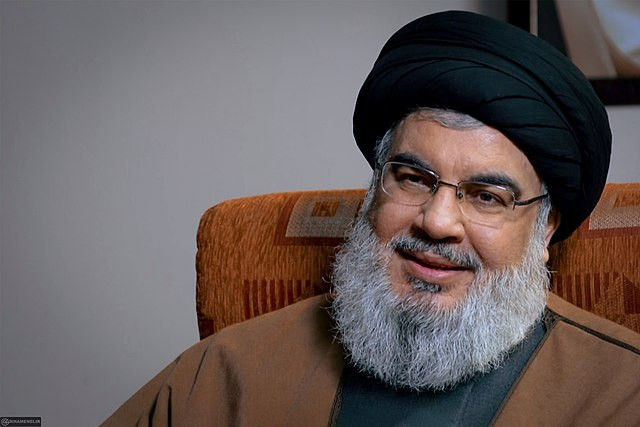Hezbollah has confirmed the death of its leader, Hassan Nasrallah, following an Israeli airstrike on the group's headquarters in Beirut. This development marks a significant escalation in the ongoing conflict between Israel and Hezbollah, raising concerns of further instability in the region.
The Israel Defense Forces (IDF) announced on Saturday that Nasrallah had been killed in a strike targeting Hezbollah's command center, located in the Dahieh suburb of Beirut. "Hassan Nasrallah will no longer be able to terrorize the world," the IDF stated on social media.
Nasrallah had been the leader of Hezbollah since 1992, transforming the group into a powerful military and political force in Lebanon and a key proxy for Iran in the Middle East. Under his leadership, Hezbollah gained significant influence, particularly through its elite Radwan Force and its expansive arsenal of ballistic missiles aimed at Israel. Nasrallah's death is a blow to the organization, but Hezbollah has vowed to continue its fight against Israel, even as its leadership structure faces serious disruption.
Iran, a staunch supporter of Hezbollah, responded to Nasrallah's death by reaffirming its support for the group. Iran's Supreme Leader, Sayyed Ali Khamenei, downplayed the impact of Nasrallah's death, stating that the strike did not weaken Hezbollah's "strong structure." Khamenei also called on all resistance forces in the region to stand with Hezbollah, signaling that Iran remains committed to supporting its allies in the ongoing conflict. Iran has called for a special meeting of the Organization of Islamic Cooperation to address the escalating violence in Lebanon and Gaza.
Hezbollah's significance to Iran and its role as a key player in the region's power dynamics mean that the consequences of this attack could be far-reaching. Experts believe that Iran will likely retaliate, given that Nasrallah's death represents a serious setback for its influence in Lebanon. Burcu Ozcelik, a senior research fellow for Middle East security at the Royal United Services Institute, stated, "Hezbollah is Iran's strategically significant asset and main deterrent against Israel. This has been severely degraded now, and how Iran chooses to respond will be highly consequential as the conflict evolves."
Despite Nasrallah's death, Hezbollah is expected to continue its campaign against Israel. The group has been actively involved in the conflict, firing rockets and drones at northern Israel in solidarity with Palestinian militant groups. Hezbollah's attacks have intensified since the war between Israel and Hamas began on October 7. Nasrallah himself had expressed support for Hamas' actions and vowed to keep pressuring Israel until it ended its offensive in Gaza.
The situation in Lebanon remains tense, with the potential for further escalation. The U.S. and France have been advocating for a 21-day truce between Israel and Hezbollah to allow for negotiations, but Israel has so far rejected the proposal. Secretary of State Antony Blinken emphasized the need for a diplomatic solution, stating, "The question is what is the best way to achieve its objectives, to reach enduring security."
As Israel and Hezbollah continue to exchange attacks, concerns are mounting about the possibility of a broader war in the region. Defense Secretary Lloyd Austin warned that a conflict in Lebanon could be even more devastating than the war in Gaza, with the potential for large-scale casualties. Israeli Prime Minister Benjamin Netanyahu has pledged to continue military operations against Hezbollah, stating, "There is no place in Iran that the long arm of Israel cannot reach."
Nasrallah's death comes amid an 11-month conflict between Israel and Hezbollah, which has already claimed hundreds of lives. Israel has intensified its strikes on Hezbollah strongholds in Lebanon, including a recent attack that killed more than 500 people. The Lebanese Health Ministry confirmed that at least six people were killed and 91 injured in Friday's strike targeting Nasrallah, though the full extent of the damage is still being assessed.
Former Israeli Intelligence official Avi Melamed described the strike as a significant blow to Hezbollah's dominance in Lebanon, stating that it could give the Lebanese people a chance to "liberate themselves from Iranian influence." He added that Iran will likely need to reevaluate its regional strategy following Nasrallah's death.




